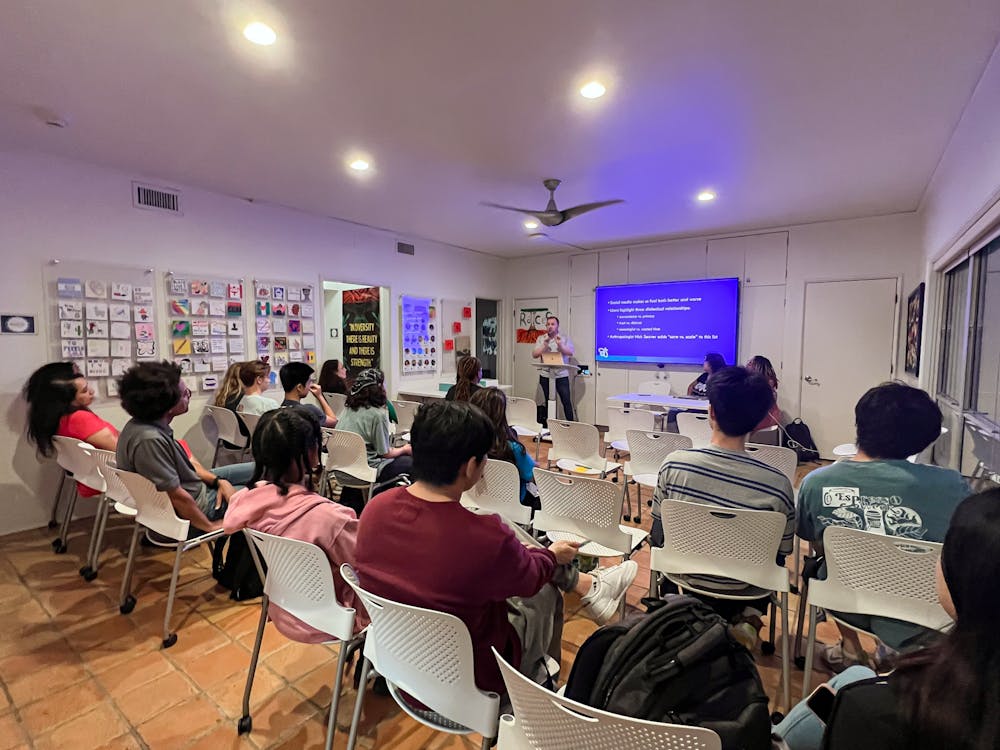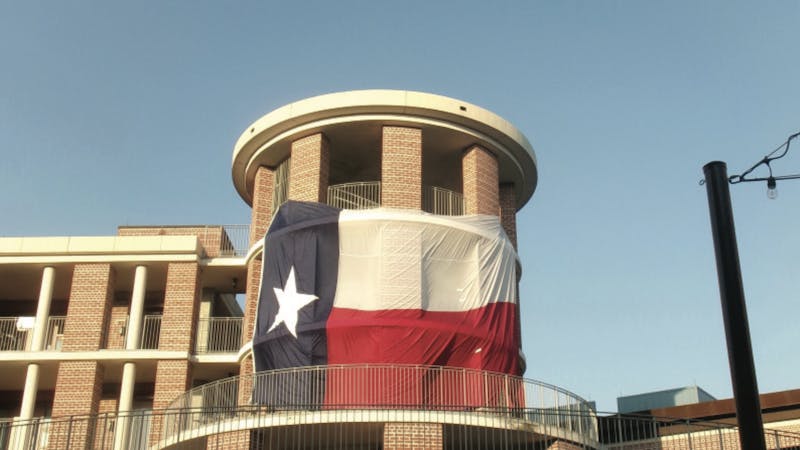CDOD hosts conversation on Fizz

Katherine Hui / Thresher
The Office of Diversity, Equity and Inclusion hosted a conversation about Fizz, an anonymous social media platform, as a continuation of the Critical Dialogues on Diversity series. Panelists spoke about the dangers of anonymity, impacts on the culture of care and how the conversations on the app are representative of the student body as a whole.
Angelina Hall, a teaching assistant for CDOD and diversity facilitator, served as one of the panelists for the discussion. She co-wrote an opinion piece about Fizz and the culture of care last fall. Hall spoke about the dangers of the app, including her own experiences and specific conversation themes she has noticed.
“There have been a lot of conversations about body shaming and fatphobia; there was a conversation chain that went on for about two weeks while we were on winter break about that topic,” Hall, a Brown College junior, said. “I feel like this happens quite a lot and very often, and it has been taking place since Fizz first got to campus last semester.”
Professor of anthropology Baird Campbell, another panelist, spoke about the theory behind dialectics, social media and why the combination of the two makes regulating Fizz a difficult topic to approach.
“[Dialectics] are defined by the fact that they can’t be resolved,” Campbell said. “This is the issue with there being so many of them in the structure of social media… there really isn’t a great answer for what to do to make this really way better or different.”
Campbell said that he believes the darkest places on the internet are often anonymous.
“Once you’re totally anonymous, you can sort of do whatever you want. And people have to decide whether they’re going to trust or distrust you. They’re going to have to decide whether they want to spend their time engaging with [the anonymous entity],” Campbell said. “And ultimately, the more and more of this process there is, the less likely we are to be able to moderate it meaningfully do anything about it.”
Jazmine Castillo also served as a panelist to the discussion and shared her experiences with fatphobia and discriminatory messages against minorities on Fizz. She wrote an article about fatphobia following a discussion on Fizz over winter break.
“A lot of things that are being discussed are not just conversations that are happening on Fizz but lived experiences by people on this campus,” Castillo, a McMurtry College senior, said. “And oftentimes, the anonymity that empowers the people to say derogatory or discriminatory comments on Fizz is the same anonymity that allows people to respond to them.”
Campbell said he encourages students to consider what Rice’s culture of care really means.
“Right here in Texas, forms of ‘care’ have been used to justify incarcerating migrants, racialized policing, and banning access to reproductive healthcare,” Campbell said. “In short, to say that your culture is one of ‘care’ doesn’t mean much in and of itself. The controversy generated about Fizz seems like an invitation to the campus community to define exactly what our values are, perhaps grounded in the idea of [culture of care]. That is: what does the Rice community—and the Rice administration—stand for, and what does it stand against?”
More from The Rice Thresher
Rice lands high on Niche, Forbes college ranking lists
Rice recently ranked No. 10 on Niche’s Best Colleges in America list and No. 12 on Forbes’ annual America’s Top Colleges list in 2026. It was also recognized in several categories by the Princeton Review, placing in the top 10 in four categories.
From post-human novels to augmented reality, Rice hires new faculty
Rice welcomed 97 new professors this fall across disciplines, including a posthumanist Harvard scholar, a husband-wife duo and a computer science professor who graduated from Rice thrice.

First public of the year reckons with threats of a dry campus
After a Dis-O that saw four times as many calls for intoxication-related transports of students to the hospital compared to the prior three years, Cory Voskanian, a Martel College socials head tasked with planning the first public of the year, said that he was feeling the pressure.


Please note All comments are eligible for publication by The Rice Thresher.